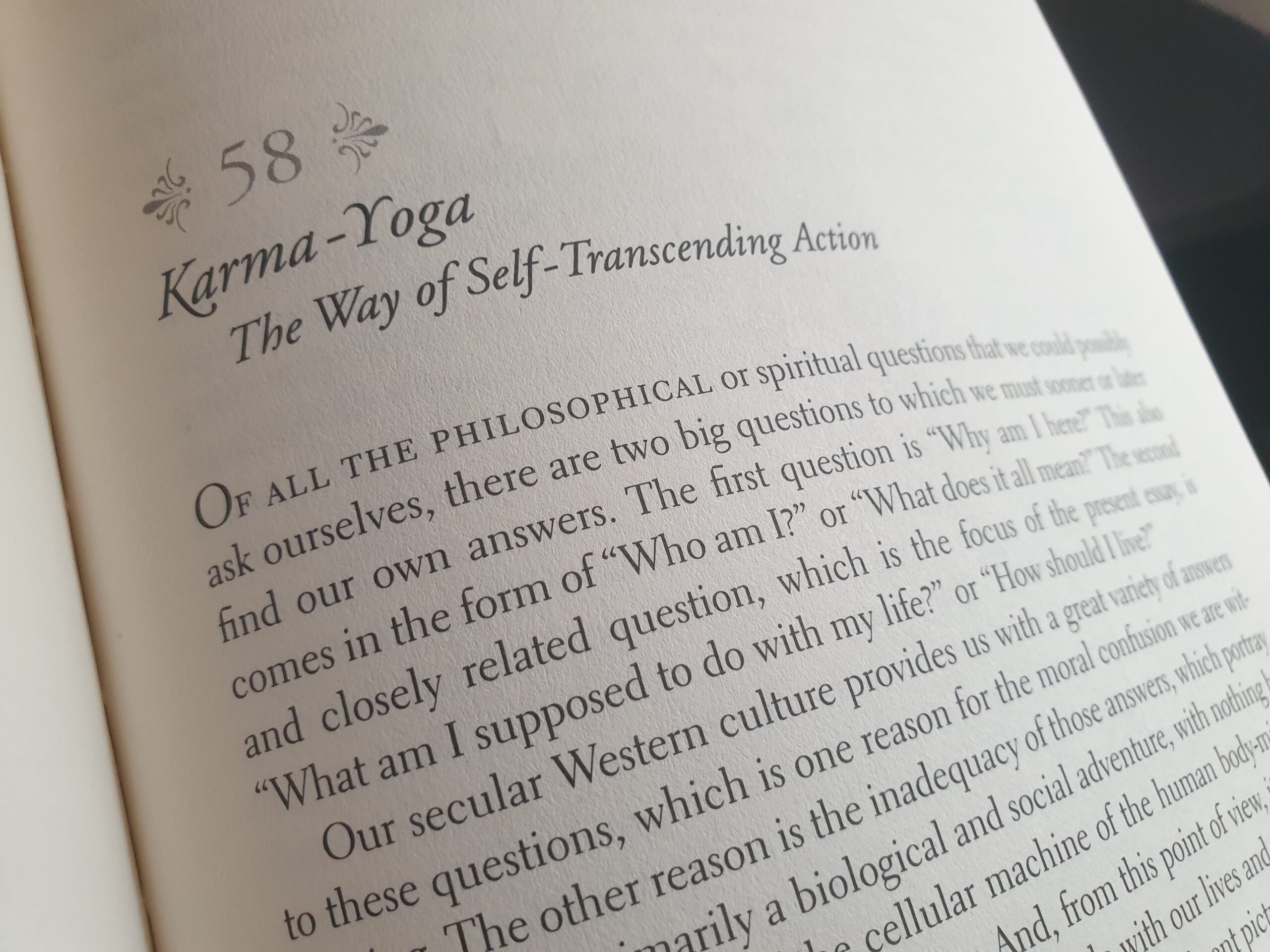On Expectations
July 17, 2024

Thoughts on the text “Karma-Yoga, The Way of Self-Transcending Action” from the book “The Deeper Dimensions of Yoga” by Georg Feuerstein.
A long, long time ago I had started reading Georg Feuerstein’s book “The Deeper Dimensions of Yoga” in the way I always do with books skimming through the text before reading it in its entirety, while stopping at the points that seemed to be of the greatest interest. One of these points was the chapter “Karma-Yoga, The Way of Self-Transcending Action”, which I had then read with the enthusiasm and yearning of someone who wanted to know everything about this “yoga of action” (karma yoga) taught to a young prince of the nobility and morality of Arjuna by such an enlightened teacher as Krishna of the Bhagavad Gita.
And so much time passed until the book came into my hands again and I read the same chapter with a more mature perspective but also more “filled” with the questions it brought with it. And most of them had as their starting point the following oftentimes heard – at least to my ears – sentence: A yogi should not have expectations in life.
What real benefit can have for modern man a notion like the above, completely problematic in its formulation and conception and how much confusion does it create? Because, it is kind of strange how a system, like yoga in this case, which aims to bring balance in your inner and outer world, can tend so much towards extremes, teaching you that all the expectations you have as a human being, without exception, are threats to your spiritual life and for that you must crush them in the same destructive way that you would exterminate the most poisonous and terrifying snake that would approach you to threaten your life in one of your nightmares.
An “extremely” conflicting, we would all agree, logic, given that it contradicts a natural need, the desire for life, and therefore, evolution itself, since the former is inextricably linked to the latter. As for the evolution that the yoga system, in particular, speaks to us about, without the expectation of knowing the truth about oneself, it would be rather unlikely for someone to succeed on the long and often rugged path of knowledge; to have the will to continue, when in the face of the difficulties that he/she will encounter, everything inside him/her will cry out to give it up.
Certainly, his/her expectations should be appropriate for the specific path. As Krishna teaches us in his karma yoga, they cannot be the product of his/her attachment to selfish motives and hidden, personal rewards that he/she will anxiously try to achieve, especially when things would not go according to his/her anticipations. But apart from the appropriate expectations, you should, in addition, Krishna will say, pay attention to your attitude towards them. As a karma yogi, you must advance the plan of your evolution without asking persistently to collect your repayment by taking back one by one all (material goods, time, emotions) that you have “sacrificed” along the way.
This does not mean, on the other hand, that you should accept the fact that your “reward” will be nothing, not even the slightest benefit. The futility that such an absolute nothing would raise in our minds would make us extremely reluctant to take up action, and therefore to walk the path of karma yoga. The practice of non-attachment that karma yoga presupposes in no way prohibits the existence of reward. It is natural to want the “reward” to come, otherwise where would your expectation lie? It is simply not in your power to make it match your wants.
If you could, in other words, maintain the “heat” of excitement that anticipation brings, while eliminating the “heat” of the desire to control its fruits, you would be very close to understanding the essence of Krishna’s teachings. As long as you don’t go, of course, to the other extreme, as Georg Feuerstein very aptly points out in his book, and become obsessed with your indifference:
An important aspect of the practice of karma yoga is the non-neurotic indifference to what Krishna calls the “fruit” (phala) of our actions.
Because, as neurotic, indifference towards the “fruit” of our expectations will be nothing more than another type of attachment which will cause the kind of psychological pressure that we should avoid…
